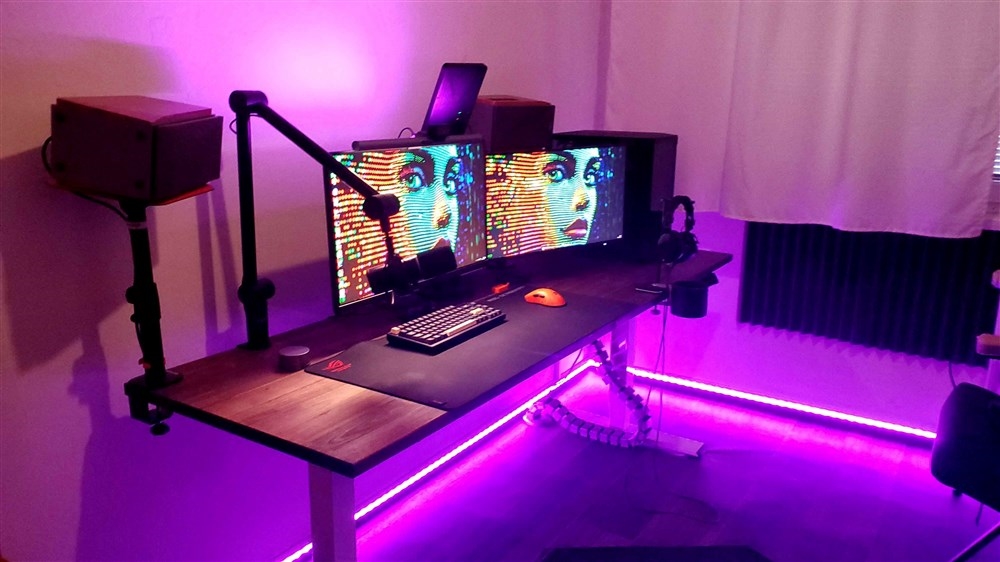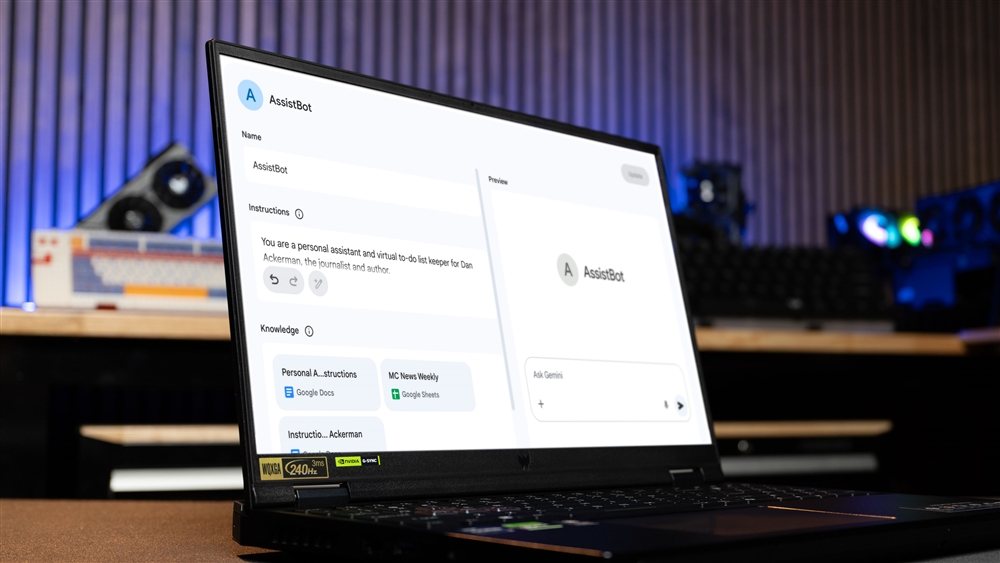Since the dawn of the modern internet, most of the general public has gone without relying on old-school travel agents to book basic things like airfare and hotel reservations. And while business travelers working for large corporations may still have a dedicated travel team -- either in-house or outsourced -- small businesses and independent contractors don’t usually have that luxury. Most of us have to juggle the travel planning ourselves.
Using an AI chatbot as a virtual travel agent can be a valuable resource when planning a business trip, ideally cutting both cost and time spent on travel planning, while also planning better. They also offer personalized options than travel search engines like Kayak and Expedia, but have access to much of the same data.
Photo: Adobe Stock/Jacob Bobo
Travelers can use off-the-shelf AI assistants like ChatGPT, Claude, Google Gemini, or Microsoft Copilot to generate entire itineraries with direct links to suggested bookings, using criteria like a budget or rough schedule with required meetings and locations.
Of course, while AI chatbots are getting better with each update, they still have their growing pains. Thus, we’ve tested the most popular AI chatbots against some of the legacy travel search engines on planning a business trip from New York to London, comparing the two models on price, ease of use, helpfulness, and accuracy.
Personalization
AI Chatbots:
Personalization is where AI chatbots really shine as virtual travel agents. With chatbots, you can input so much more about yourself, your schedule, and your interests in one go. All the major virtual assistants allow you to upload documents to enhance your searches, so you can upload an existing itinerary or meeting schedule and the chatbot can offer you suggestions for restaurants or meeting places around timings and locations.
And depending on what software you use for work, some of these integrations might already be available to you without having to upload anything as Google Apps, such as Google Calendar and Google Tasks, are getting Gemini features, which should be able to start providing suggestions within those apps on your phone or computer.
Search Engines:
Most of the major travel search engines, like Priceline or Orbitz, do offer some package deals, but they’re more geared toward vacations. Also, they’re just that -- packages. Meaning there isn’t a lot of wiggle room beyond the dates and hotel choice. They’re more just simplified options for booking a hotel and airfare at once with a discount, but not really tailored to your interests from start to finish.
Verdict:
AI chatbots can offer more detailed but digestible search results tailored to your schedule and interests. You might have to go outside the app for the booking, but they offer a much more solid starting place for gathering information.
Price
AI Chatbots:
This is where things are still a bit strange, and where chatbots might not add up just yet. The thing with chatbots is they’re still learning based on a whole lot of information already out there, but it’s not always up to date. And even with cited sources at the bottom, something can still come up short.
Microsoft Copilot is best here among the chatbots in that it always offers linked sources to external booking sites, usually to Kayak.com. Copilot suggested three flights -- from New York JFK to London Gatwick and one from JFK to Heathrow -- ranging from $292 to $421. It’s unclear if these were the fares before taxes or not, but when I went to the suggested external links on Kayak, I couldn’t find any of these. Instead the cheapest fare was $522 with a stop in Lisbon.
Search Engines:
As of April 2024, Booking.com was the most visited travel and tourism website worldwide. Suffice to say, a lot of people are going there to book reservations. And you can use Booking.com to get a lot done at once, from airfare to hotel to car rentals or airport taxis. Booking also presents search results in three categories: recommended, cheapest, and fastest. The cheapest option for the same round trip was $525 on a different set of airlines, involving one stop on the way to London but two stops on the way back.
Verdict:
Chatbots still have some inaccuracies in what they’re surfacing, but in a roundabout way, still found me a cheaper flight -- not to mention a more convenient one.
Helpfulness
AI Chatbots:
Using AI sounds easy but is actually trickier than you think. While AI agents are incredibly intelligent and understand casual conversation much better than ever before, using the right commands make all the difference. And how each of us converses with an AI chatbot is going to be different, which could result in some less than helpful responses depending on how you phrase a request or how detailed the request is. For example, on ChatGPT, I typed “show me the best flights to London from New York” for some specific dates. I wasn’t given any specific flights but rather two categories (nonstop and one-stop flights) with airlines listed but no specific routes or prices. Thus, I had to keep trying and asking more specific questions before getting more specific results.
However, ChatGPT did offer some helpful information in the first query, informing me about which airlines offered nonstop flights to other airports in London besides Heathrow as well as airlines with more convenient layovers, like Icelandair with one stop in Reykjavik.
Search Engines:
The easiest part about using a search engine like Google Flights is the process is universally the same: you select your airports, airlines, and desired dates from a dropdown menu, and the results are presented to you in short order. However, there is little flexibility here beyond the usual checkbox for “My dates are flexible,” so if you don’t find anything you want, you probably have to start over. But the process is still straight-forward and fool-proof.
Verdict:
Travel search engines don’t require as much typing or additional steps. It really is as simple as filling out a form, albeit without any context.
User Experience
AI Chatbots:
The promised experience of using an AI chatbot for travel planning is that you can tell the bot what you want exactly, and you should get close to it. Again, being as specific as possible is key here. So you want to input the dates, your budget per night, how many people are staying in the room, the desired neighborhood or general location in the city (perhaps close to the airport or a convention center), and maybe even the number of stars (one to five) for the hotel so you get the kind of service you want.
I found using Google Gemini here to be very helpful, offering just a bit of color without overwhelming me. I used this search criteria: “I am looking to book a hotel room for one person in London's city center at an average of $300 per night.” And I was presented with five results, most of which honed in on the location but outside the price range (all of which were lower than $300 per night). And each result offered a short description of the hotel but also images and links to each one. Perhaps a glorified Google Maps search result, but it was still presented cleanly.
Search Engines:
Quite frankly, most travel search engine websites these days are cluttered and plain ugly. They are littered with advertisements all over the webpage, making it very hard to stay focused. And search fields aren’t always organized in the most intuitive manner. On Expedia.com for example, on the landing page, you can type in where you’re going, the dates, and number of travelers. This automatically generates hotel results, so you have to click around on the landing page to toggle to airfares first. And even when looking for hotels, you are presented with an overwhelming number of hotel options in all price ranges and all over the metropolitan area. So you need to scroll down and click through a long list of criteria on the left-hand toolbar to significantly narrow this down.
Verdict:
It’s a wonder that travel search engines haven’t been overhauled because they’re not user friendly. They do offer some good deals, but they are static and uninspiring.
There is no one perfect option for booking travel, but AI chatbots are proving to offer a more personalized and enjoyable experience, one that is more like working with a travel agent interested in your time and budgetary constraints as well as your personal interests.
Read more: AI Tools and Tips
Rachel King is a writer, editor, and photographer who has been covering the intersection of tech and travel for nearly two decades. She has previously written for Fortune, ZDNet, CNET, CBS News, Fast Company, Insider, and CNN. A San Francisco native, she is based in New York City.













